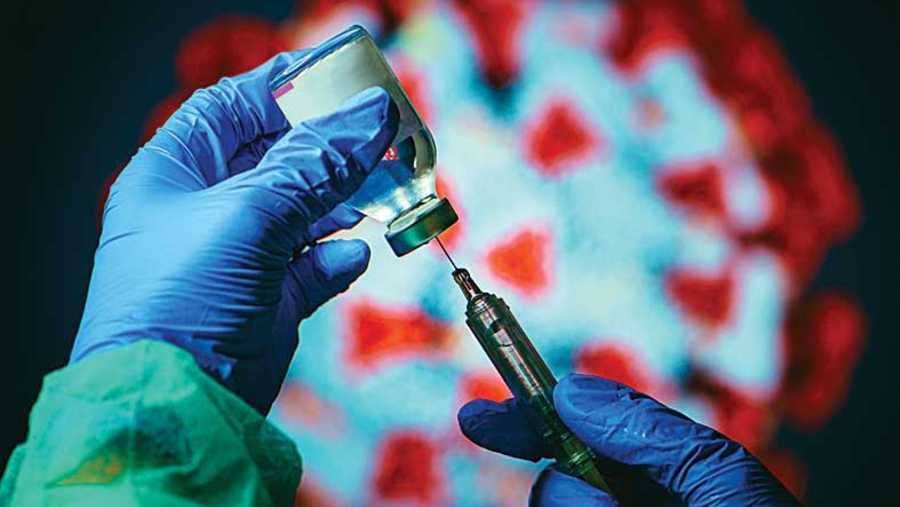A study of 614 fully vaccinated health workers in India found a "significant" drop in their COVID-fighting antibodies within four months of the first shot.
The findings could help the Indian government decide whether to provide booster doses as some Western countries have done.
Waning antibodies do not necessarily mean that immunised people lose their ability to counter the disease, as the body's memory cells may still kick in to offer substantial protection, said the director of a state-run institute that did the study.
"After six months, we should be able to tell you more clearly whether and when a booster would be needed," Sanghamitra Pati of the Regional Medical Research Centre, based in the eastern city of Bhubaneswar, told Reuters on Tuesday.
"After six months, we should be able to tell you more clearly whether and when a booster would be needed," Sanghamitra Pati of the Regional Medical Research Centre, based in the eastern city of Bhubaneswar, told Reuters on Tuesday.
"And we would urge similar studies in different areas for pan-India data."
British researchers said last month that protection offered by two doses of the Pfizer (PFE.N)/BioNTech (22UAy.DE) and the AstraZeneca (AZN.L) vaccines begins to fade within six months.
The Indian study, published in the Research Square pre-print platform but yet to be peer-reviewed, is one of the first such done in the country involving its main two vaccines - Covishield, a licensed version of the AstraZeneca shot, and domestically developed Covaxin.
Health officials say though they are studying the evolving science on booster doses, the priority is to fully immunise India's 944 million adults. More than 60% of them have received at least one dose and 19% the required two doses.
Till yesterday, the cumulative Covid vaccine doses administered in the country crossed 75.81 crores, the Union Health Ministry said in a bulletin.
More than 54 lakh (54,72,356) vaccine doses were administered till 7 pm yesterday, it said.
Meanwhile, India on Wednesday recorded 27,176 fresh Covid cases, 284 new casualties.
With the fresh cases, India's total tally of COVID-19 cases rose to 3,33,16,755, while the death toll has climbed to 4,43,497, according to the data updated at 8 am.
The active cases declined to 3,51,087 comprising 1.05 per cent of the total infections, while the national COVID-19 recovery rate was recorded at 97.62 per cent, the ministry said.
A reduction of 11,120 cases has been recorded in the active COVID-19 caseload in a span of 24 hours.
As many as 16,10,829 tests were conducted on Tuesday taking the total cumulative tests conducted so far for detection of COVID-19 in the country to 54,60,55,796.
The daily positivity rate was recorded at 1.69 per cent. It has been less than three per cent for last 16 days.
The weekly positivity rate was recorded at two per cent. It has been below three per cent for the last 82 days, according to the ministry.
The number of people who have recuperated from the disease surged to 3,25,22,171, while the case fatality rate was recorded at 1.33 per cent.










